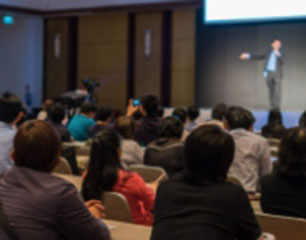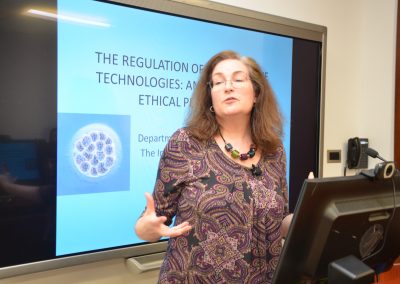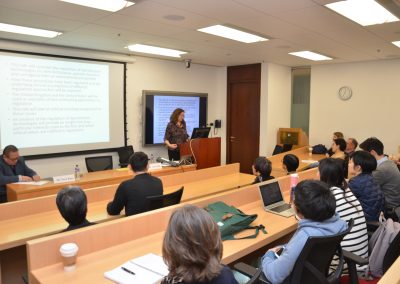Abstract:
This talk will consider the regulation of reproductive technologies (in vitro fertilisation, gamete donation and surrogacy) from an international perspective. How these procedures have been regulated and the underlying ethical assumptions of different regulatory approaches will be explored. The United Kingdom and the United States will be used as examples of two contrasting approaches to regulation. In the UK legislation that covers all aspects of these procedures has been enacted, with a regulatory authority that oversees the running of clinics and responds to new developments. In the US there is minimal state and federal regulation, with a reliance on professional oversight to ensure good, safe and ethical practice. This talk will take an ethical-sociological approach to these issues and consider the following questions: what are the correct ends of regulation in this area? What kind of practice do we want to encourage and discourage? Who are the key actors in this area to safeguard?
Speaker:
Dr Lucy Frith, Department of Health Services Research, The University of Liverpool
Dr Lucy Frith is Senior Lecturer in Bioethics and Social Science in the University of Liverpool’s Medical School. Her research focuses on the social and ethical aspects of health-care decision-making, policy and regulation, with a particular interest in empirical ethics and socio-legal approaches. She has carried out research on pregnancy and childbirth; reproductive technologies (gamete and embryo donation); research ethics (clinical trials and public involvement and cross-cultural issues in consent); and the use of evidence in practice and policy. She has held visiting fellowships at the University of Cambridge Centre for Research in Arts, Social Science and Humanities and she is currently Visiting Fellow at the Centre for Medical Ethics and Law at the University of Hong Kong.








